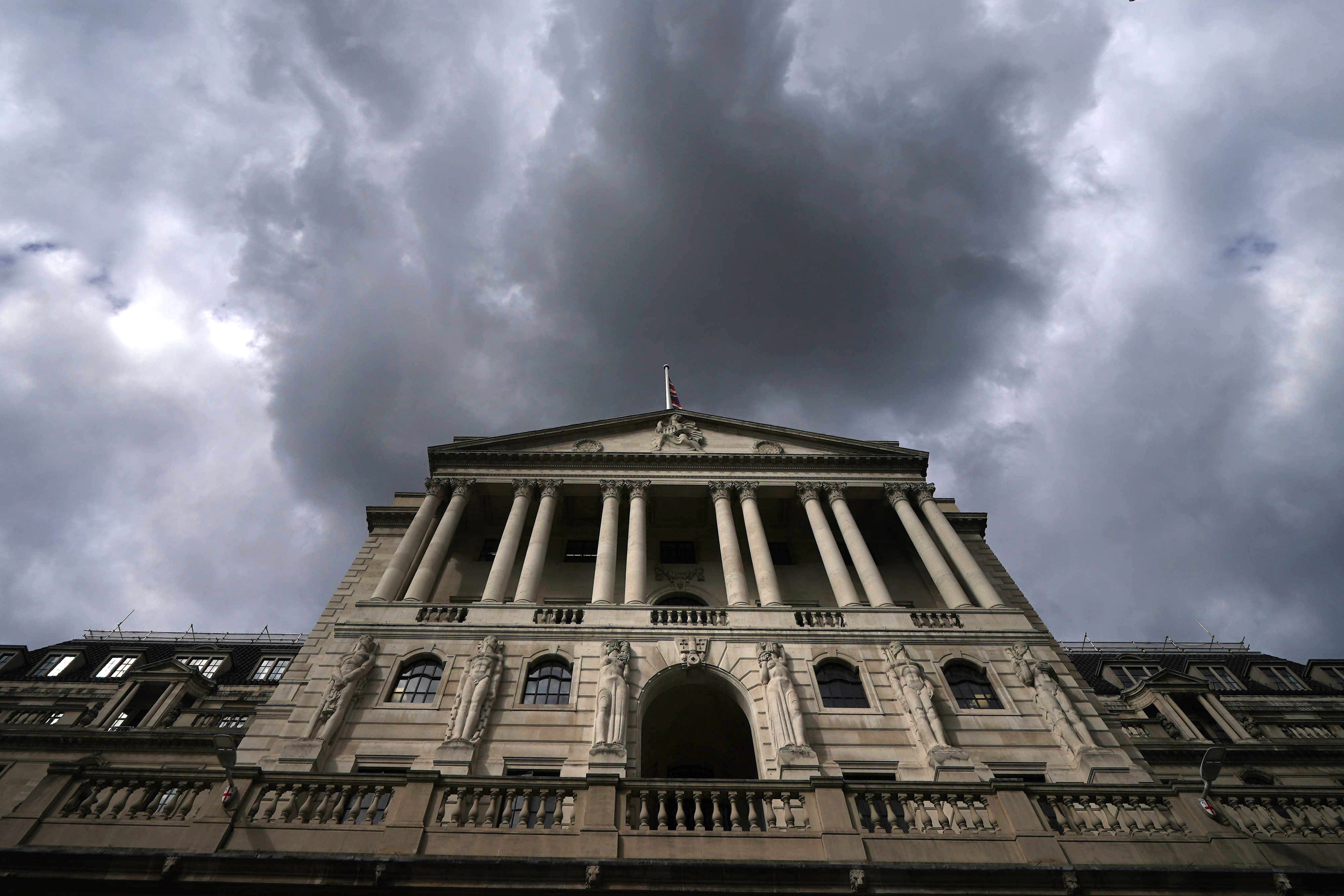Bank may need to spark recession to control inflation, economist says
Inflation remained unchanged at 8.7% in May, the Office for National Statistics revealed on Wednesday.

Your support helps us to tell the story
From reproductive rights to climate change to Big Tech, The Independent is on the ground when the story is developing. Whether it's investigating the financials of Elon Musk's pro-Trump PAC or producing our latest documentary, 'The A Word', which shines a light on the American women fighting for reproductive rights, we know how important it is to parse out the facts from the messaging.
At such a critical moment in US history, we need reporters on the ground. Your donation allows us to keep sending journalists to speak to both sides of the story.
The Independent is trusted by Americans across the entire political spectrum. And unlike many other quality news outlets, we choose not to lock Americans out of our reporting and analysis with paywalls. We believe quality journalism should be available to everyone, paid for by those who can afford it.
Your support makes all the difference.The Bank of England might need to spark a recession to finally get price rises under control, an economist who advises Chancellor Jeremy Hunt has warned, as inflation proved more persistent than expected.
JP Morgan’s Karen Ward said that without weakness in the economy, inflation might stick around for much longer.
She said there are “certainly signs” in the economy of a so-called price-wage spiral, where companies hike prices and as a result workers demand pay rises, which leads to companies hiking prices again.
Speaking to BBC Radio 4’s Today programme, Ms Ward, who sits on the Chancellor’s economy advisory council, said the Bank of England has to interrupt this spiral.
“The difficulty for the Bank of England – I mean, no-one envies them their job at the moment – is they have to therefore create a recession,” she said.
Policymakers won’t want to steer market rate expectations lower, only to find that further inflation surprises force it to go further than it would like over the coming months
“They have to create uncertainty and frailty, because it’s only when companies feel nervous about the future that they will think ‘Well, maybe I won’t put through that price rise’, or workers, when they’re a little bit less confident about their job, think ‘Oh, I won’t push my boss for that higher pay’.
“It’s that weakness in activity which eventually gets rid of inflation.”
Downing Street said the Chancellor will “receive advice from a number of experts” but that the aim is to “grow the economy.”
The Prime Minister’s official spokesman said: “That can’t be achieved through spiralling wages and through high inflation so to pursue that in the long term we must retain fiscal discipline.”
On Wednesday, the Office for National Statistics said inflation had remained at 8.7% in May, unchanged from the month before and much higher than the 8.4% experts had forecast.
It will likely put more pressure on the Bank of England’s Monetary Policy Committee, which meets on Thursday, to hike interest rates.
The news also hit markets, increasing the interest rate the Government pays on two-year gilts – essentially IOUs issued by the Treasury – to a fresh 15-year high of nearly 5.09%. Longer-term borrowing costs also rose.
ING developed markets economist James Smith said: “It’s another month where UK inflation has come in dramatically higher than expected and that all but guarantees another rate hike from the Bank of England tomorrow.
“When rates got this high last November, the Bank of England offered some rare pushback against market expectations and signalled a lower peak for rates.
“This time, with inflation consistently coming in hotter than expected, we suspect officials will be more reluctant to offer any firm guidance on what comes next.
“Policymakers won’t want to steer market rate expectations lower, only to find that further inflation surprises force it to go further than it would like over the coming months.”
Rob Morgan, chief investment analyst at Charles Stanley, said: “With prices showing little response to the Bank of England’s twelve successive interest rate rises, today’s figures seal a further increase in interest rates at the Monetary Policy Committee’s next meeting tomorrow from the current level of 4.5%.
“An increase to 4.75% is all but nailed on, but a shock-and-awe rise of 0.5% to 5% cannot be ruled out.
“The Bank of England will likely maintain tight policy for the remainder of the year, meaning further interest rate rises and no significant rate cuts until 2024.”